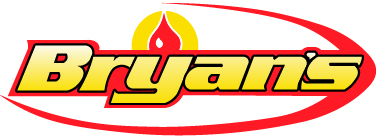Propane can be a very risky product if it’s not handled properly. The Canadian Propane Association is distributing a brochure to educate consumers on how to stay safe with propane. We’ve gone through the brochure and summarized some of the information. See the full version of the brochure at Propane.ca.
Lighting Pilot Lights
If a pilot light goes out, it’s best to get a professional to relight it if you don’t know how. If you do it yourself, make sure you follow the manufacturer’s instructions very carefully.
Storage
Always store propane so that the cylinder is upright. Keep it in a well ventilated area and away from heat. Never place it in garbage or recycling containers.
First Aid
Propane itself isn’t toxic to people, but it can force oxygen away. If it displaces oxygen, it can suffocate you. If at any point you have been in contact with propane and feel physically unwell afterwards, move where there is fresh air, stay calm, and get medical attention. Remove clothing frozen to skin, and flush eyes if exposed to liquid propane. Extra oxygen is required for injuries related to propane vapor.
Leaks
Luckily, propane smells. If there is a leak you should be able to detect it by it’s rotten egg like smell. If it’s mixed with the right amount of oxygen, it can become flammable and will ignite easily. Propane vapor is heavy and will sink to the lowest point.
You think there’s a propane leak; now what? Extinguish smoke or flames, get everyone out of the building, shut off the propane (if it’s safe to do so), call 911 and report the leak, and have your system checked to make sure it doesn’t happen again.
Carbon Monoxide
Carbon monoxide is colourless and odourless, and it’s very toxic. This makes it extremely dangerous because it can start to kill you and you might not even notice! Have your propane appliances and ventilation checked annually to decrease the risk of carbon monoxide. Also, don’t ever use a barbeque in an enclosed space, and don’t use gas-run appliances such as an oven as a space heater.
Remember, carbon monoxide detectors are now required by law in all Ontario homes.
Maintenance
Anything in your home that uses propane should be maintained regularly. The beginning of each heating system is best. Always followl the manufacturers instructions for using propane appliances, and make sure their ventilation systems aren’t blocked. Don’t make any repairs yourself unless you have been trained, and know how to turn the propane supply off.
Detectors
There are agencies that certify detectors, ensuring they meet specific criteria and high standards. Look for certifications from agencies such as the Canadian Standards Association or Underwriters Laboratories of Canada when purchasing detectors.
There’s a lot of valuable information in the brochure that isn’t covered in this blog, so make sure to check it out for more information. Propane can be our friend, but it can also be dangerous if we don’t take the right precautions. Stay safe this summer!



